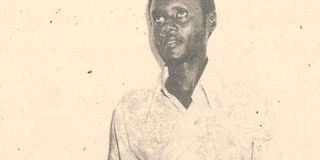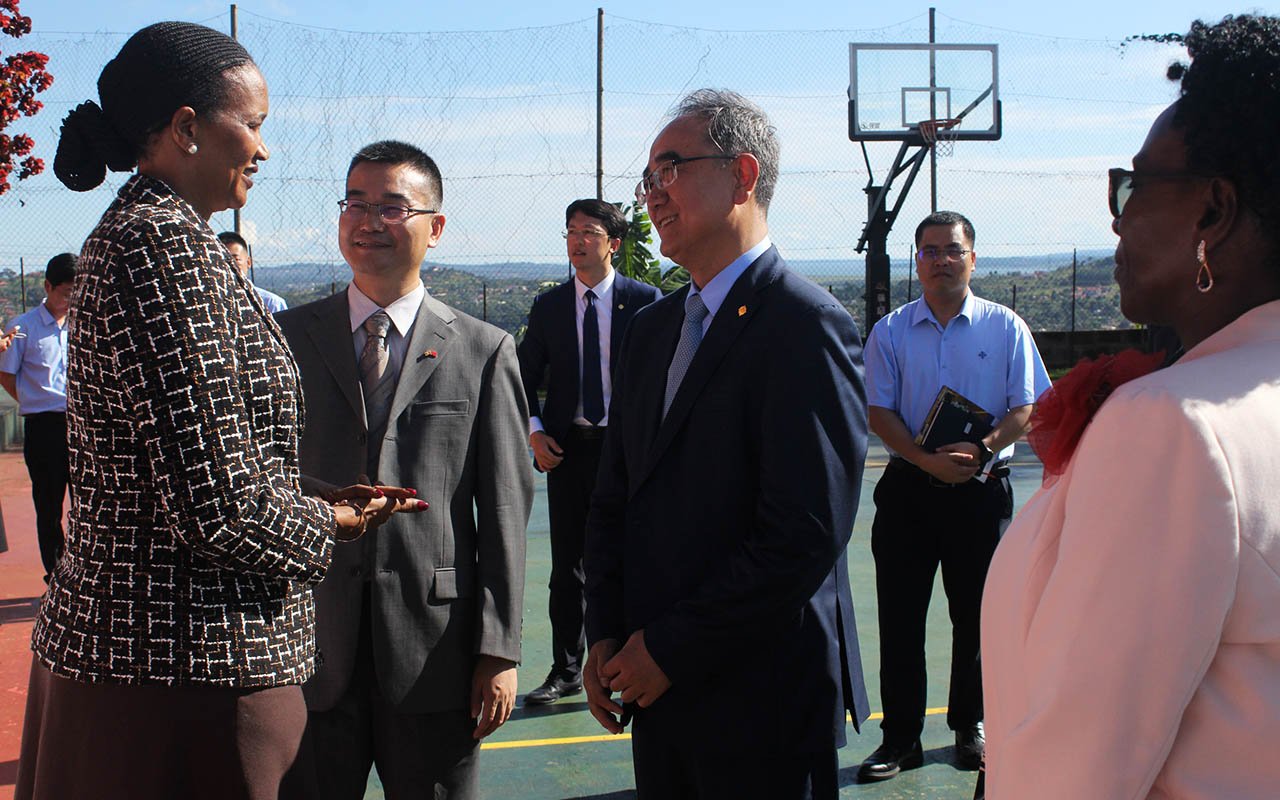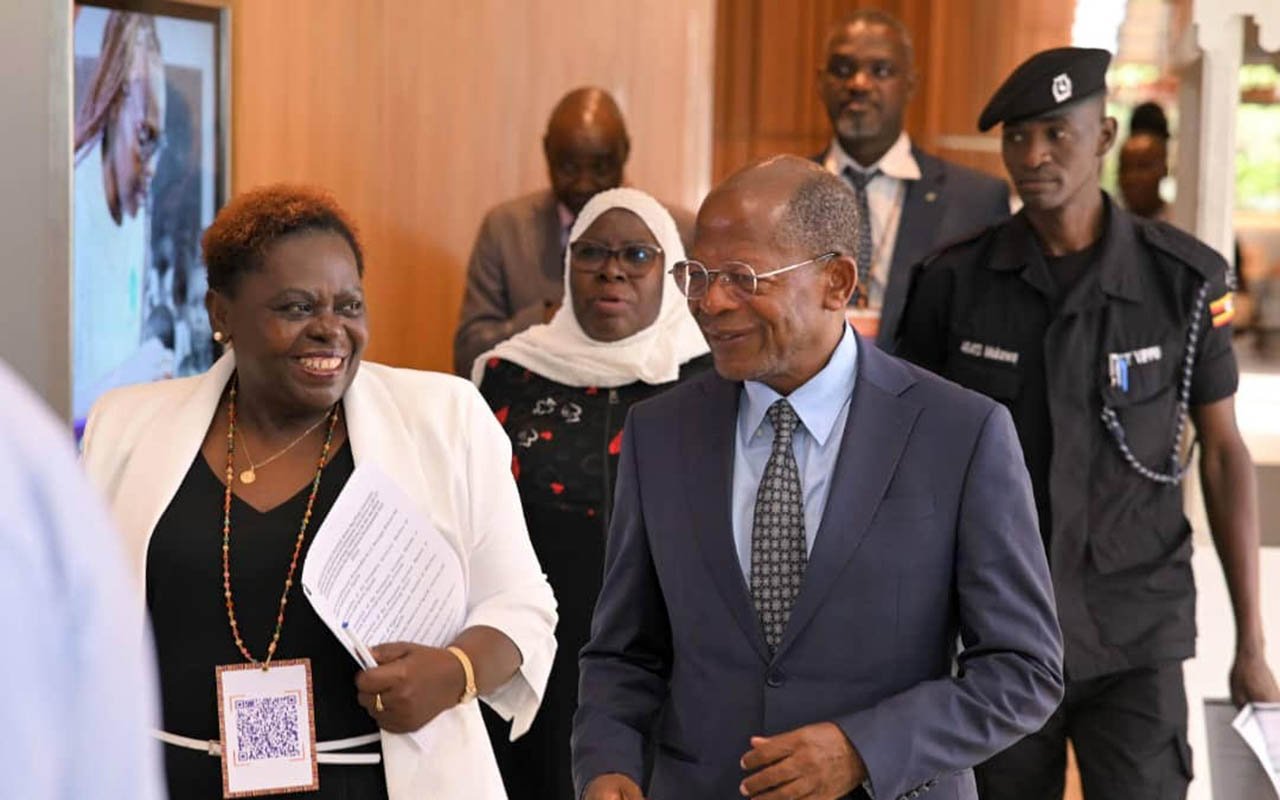Prime
How Amin tracked Fronasa rebels

On January 30, 1973, Abwooli Malibo was allegedly arrested by the PSU at the Uganda Bookshop Tea room with a pistol and three magazines. Courtesy photo
What you need to know:
Greatest technic. Amin has been described as a brute dictator, mass murderer to the extent that indeed some pundits equalled him to a psychopath case. Some even portrayed him as a dense leader. However, what is undisputable was the network and ferocity of his public and military intelligence. Military intelligence was probably his best tool.
Ugandans shall never forget the February 10, 1973. For, it was the ‘blackest day’ in Uganda’s history. That morning, the country woke up in a sombre mood but ready to see the alleged guerrillas, who were fighting Idi Amin’s government, executed in public in their respective home districts. This was the first public execution by firing squad in the history of Uganda.
Amin was a brute dictator, mass murderer to the extent that indeed some pundits equalled him to a psychopath case. Some even portrayed him as a dense leader.
However, what is indisputable was the network and ferocity of his public and military intelligence. Military intelligence was probably his best tool that he used to govern Uganda for eight years.
The notorious State Research Bureau and the Public Safety Unit (PSU) tracked and apprehended state enemies and killed them, some times without Amin’s knowledge since he had given every military officer powers to apprehend and punish any captured guerrilla after the September 16, 1972 botched attack on his government by rebels from Tanzania.
The Front for National Salvation (Fronasa) guerrillas who were more determined to militarily fight the Uganda Army from inside the country faced the wrath of the state intelligence. For instance, nearly every gun that was smuggled into the country was captured just as was every rebel cell established inside Uganda was immediately burst.
First attack on Fronasa
On January 15, 1973, the army made the first attack on Fronasa camp in Mbale in eastern Uganda.In his book: ‘Sowing the Mustard Seed’, on page 57, President Museveni wrote: “We began infiltrating arms into Uganda around May 1972.”
On page 75, he wrote: “By end of the year, we had established several cells all over the country. Maumbe Mukhwana led the group in Mbale, Kawuliza Kasadha a group in Busoga, Akena p’Ojokin Acholi. Zubairi Bakari led the Kampala cell and Joseph Bitwaari the one in Kabale.
There was a group in Tooro led by Abwooli Malibo and there was another group at Kyambogo Teacher Training College led by James ‘Muharabu’ Karuhanga.”
Unaware that Amin’s spies had penetrated their ranks, Fronasa had inadvertently involved a double-spy called Latigo based in Gulu in their rebel activities. On page 83, Museveni conceded: “As instructed, Rwaheru tried to carry out the deployments we had agreed upon. He sent Victor Amanya and David Kangire to Gulu, only to be betrayed by one of our ‘contacts’ there...”
He adds: “Kategaya and I had a little earlier narrowly survived the treachery of this same Latigo…”
Museveni also narrates how Latigo helped security operatives arrest Fronasa guerrillas in Gulu.
He said: “Once Kangire was arrested, he was asked about his contacts and it was he who mentioned Karuhanga’s house at Kyambogo which we were using.” From records available, Kangire was arrested in late December 1972. His arrest was a big crack into the rebel ranks - as their contacts and activities both inside and outsider the country became a public secret to the security agencies.
From the Gulu arrest, Amin’s security operatives had gained sufficient evidence and information as they embarked on the trail to track the guerrillas and their contacts. State Research Intelligence records, this writer obtained, indicate that recruits from Kigezi region were sent to Busoga for military training while those from Busoga and Bugisu received military training in Karengere forest in Kigezi – while Kasambya and Nyarushanje sub-counties led in providing recruits.
This information corresponds well with the facts in ‘Sowing the Mustard Seed’. On page 76, Museveni wrote: “Our problem started soon after the camp in Bunya forest had been established. Among the Bunya group were two boys who had been recruited by Joseph Bitwaari and James Karambuzi. Apparently, they found life in the bush too arduous and they decided to desert and go back home.
As they did not know the area well, and had neither money nor documents, they were arrested by villagers in the area. When they were interrogated, they revealed all they knew and Amin’s soldiers were despatched immediately to attack the forest camp.
Local contacts arrested
“Although the few fighters remaining in the camp managed to repulse the attack, some of our local contacts were arrested, including William Nkoko, who was later publicly executed in Jinja. The rebels in Bunya forests in Busoga were under the command of Wunku Mpima a.k.a Kazimoto.”
On January 30, 1973, Abwooli Malibo was allegedly arrested by the PSU at the Uganda Bookshop Tea room with a pistol and three magazines.
The following day, the Voice of Uganda newspaper had one of the front stories titled: ‘Would-be assassin arrested’, Warning on country’s security’. Malibo in handcuffs and leg chains picture was the main front picture. Meanwhile, the security operatives were working around the clock to trace the Fronasa leader, Yoweri Museveni, but with less success.
Again on page 76, Museveni wrote: “Meanwhile, without knowing that the Kazimoto group had been discovered, I left Kampala with Mwesiga and Rwaheru in our Volkswagen 1600.”
On page 78, he also adds: “Meanwhile Martin Mwesiga, Kazimoto and I travelled to Mbale to join the group, without knowing that its presence had been detected. We drove up to the house in Busiu and found it deserted.” Museveni also mentions of a suspicious Peugeot 404 trailing them.
While at their contact, Maumbe’s home in Maluku Housing Estate in Mbale, at around 5pm, the trio were cornered by the military police soldiers. While Museveni managed to escape, his colleagues were captured and killed.




